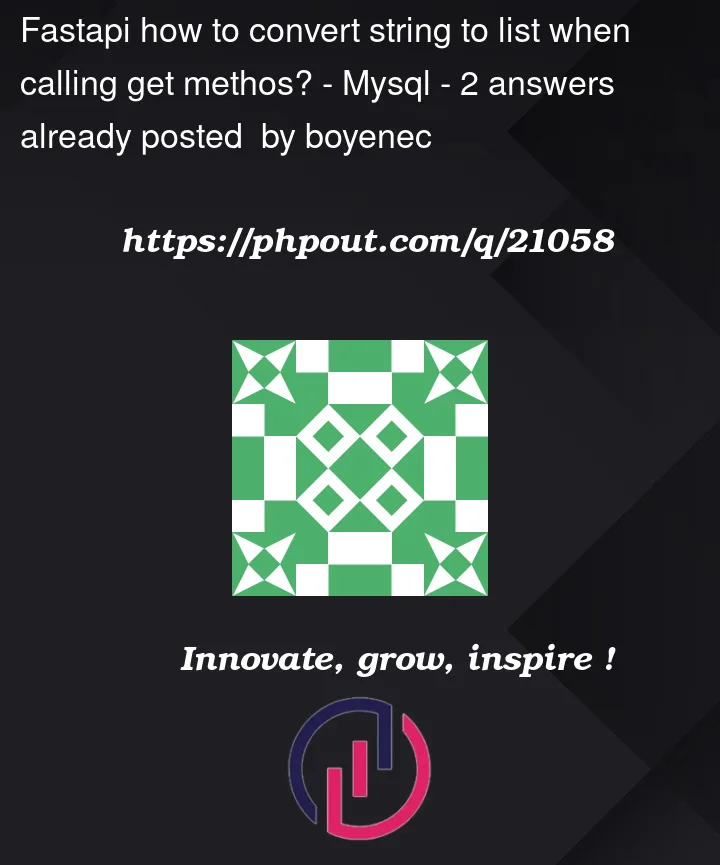I am using mysql database and it’s doesn’t support list if I stored sting like "apple","banana" in my mysql database then when using get method fastapi how to convert theme from string to list like ["apple","banana"]. I tried this but didn’t work and also not getting the image fields until I remove @property.
class Shop_page(BaseModel):
product_title: str
product_image: str
class Config():
orm_mode = True
@property
def product_image(self):
return self.product_image.split(",")
here is my get method
@router.get("/shop_page", response_model=List[schemas.Shop_page],status_code=status.HTTP_200_OK)
async def create_variations(db: Session = Depends(get_db)):
parent_item = db.query(models.ParentProduct).all()
return parent_item
my result look like now
[
{
"product_title": "DEMO PRODUCT",
"product_image": "image1_url,image2_url"
}
]
my expected result will be look like this
[
{
"product_title": "DEMO PRODUCT",
"product_image": ["image1_url,image2_url"]
}
]




2
Answers
Pydantic does not support @property decorator serializing
And I think you can just override
from_ormmethod as follows:This is what validators are for. But you need to define the schema the way you actually want it, not the way you receive it from your ORM. That means
product_imageshould be annotated as alist[str]and your validator withpre=Truewill handle the case, if you try and initialize it with a string instead:Output:
The advantage of the validator approach is that it will apply regardless of how you initialize
ShopPageand can even apply during assignment, if you configure your model withvalidate_assignment = True. So even if you doShopPage(product_title="a", product_image="b,c"), you’ll get theproduct_imageas a list.